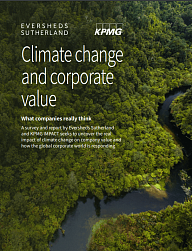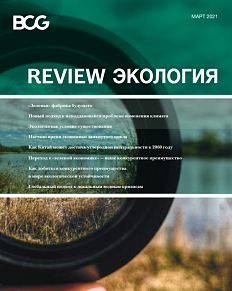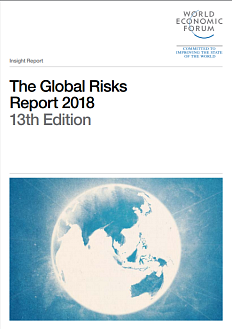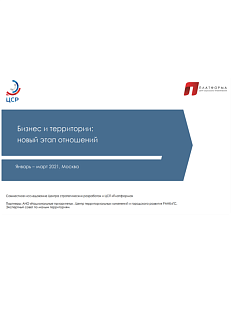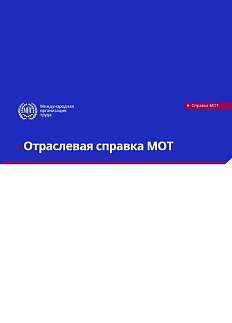The research prepared by Eversheds Sutherland and KPMG IMPACT is based on a survey of business leaders on climate change issues and seeks to identify barriers and opportunities for the global corporate response to climate change.
The Roscongress Foundation presents the salient points of the publication accompanied by fragments of broadcasts of relevant panel discussions from the business programme of international events held by the Roscongress Foundation.
According to company leaders, climate and decarbonization issues are serious problems that require actions.
There is a growing awareness among business leaders that climate change is a critical issue and is likely to significantly transform their business, but it will also bring new opportunities. However, there is a significant knowledge gap concerning what it takes to create a clean, carbon-free business. Thus, the majority of surveyed executives (74%) understand that they need to improve their skills in order to cope with the risks of climate change.
It is noted that COVID-19 does not stop the dynamics of actions to combat climate change in the corporate world, although it may slow it down in the short term.
Most companies also consider climate risk to be a very serious business issue and financial risk, and note that they recognize the importance of taking climate risks into account for the success of their business strategies.
Video: https://roscongress.org/sessions/eef-2018-mirovoy-okean-resursy-bez-granits/search/#00:41:58.527
Contemporary realities are forcing companies to implement decarbonization strategies.
Today, investors are key influence factors on the market and pay particular attention to climate issues when evaluating investment and divestment decisions. Regulatory authorities and company employees have also become an important influencing factor in decision-making. Thus, 40% of the surveyed companies said that more and more employees leave because they are dissatisfied with the company’s impact on the climate. In addition, one cannot ignore the ever-increasing size of the consumer group that makes climate change its top priority.
It’s important to note that the pressure on the supply chain from large corporate customers has become a reality in 2020, and many suppliers see that their business will suffer unless they adopt appropriate climate and carbon strategies.
However, there are a number of obstacles in the way of decarbonization. These include the high costs of decarbonization, the inability to find technological solutions, limited skills and knowledge, and a lack of awareness of potential solutions for funding climate resilience and decarbonization strategies.
The degree of concern about climate issues varies across different sectors, but is similar in terms of the study regions.
There were clear discrepancies in responses between sectors, with the largest differences recorded in the sectors of automobile and consumer goods trade, retail trade, and financial services. In particular, the financial services sector stood out, where climate accountability, implementation of decarbonization strategies, or linking climate issues to executive compensation seemed to be much less of a concern.
That said, a broad consensus of responses was observed in the four regions surveyed: the United Kingdom, the United States, Europe, and Asia. There was strong global agreement on key issues, among them, for example, shared concerns about the issue, obstacles in the way of decarbonization, and implementation of environmental incentives for executive remuneration. The research notes that U.S. companies are more focused and more concerned about climate risks than their counterparts in other regions. At the same time, corporate reporting on climate-related risks is noticeably lower in Asia than in the rest of the world.
Video: https://roscongress.org/sessions/eef-2019-rossiya-evropa-/search/#00:21:00.287
For more information, see the special sections of the Roscongress Foundation Information and Analytical System: Sustainable Development on global challenges and responses to them; Climate Change and Environment, which provide information on environmental issues; as well as Labor Market, which focuses on corporate issues and changes in the labor market.


